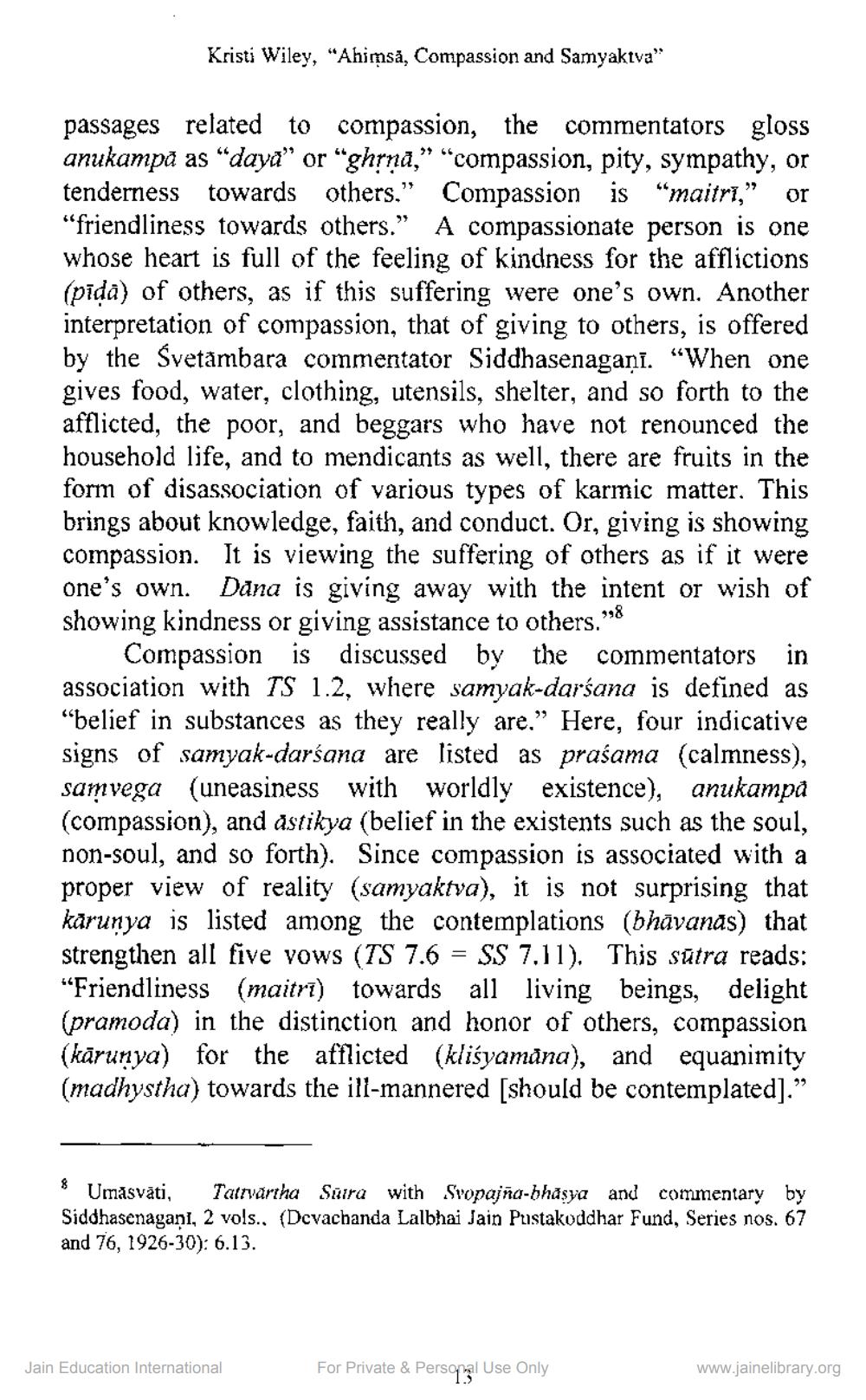Book Title: Views on Ahimsa Compassion and Samyaktva in Jainism Author(s): Kristi L Wiley Publisher: Z_Lessons_of_Ahimsa_and_Anekanta_for_Contemporary_Life_014006.pdf View full book textPage 4
________________ Kristi Wiley, "Ahimsă, Compassion and Samyaktva" passages related to compassion, the commentators gloss anukampa as “daya” or “ghṛṇa,” “compassion, pity, sympathy, or tenderness towards others." Compassion is "maitri," or "friendliness towards others." A compassionate person is one whose heart is full of the feeling of kindness for the afflictions (pīda) of others, as if this suffering were one's own. Another interpretation of compassion, that of giving to others, is offered by the Svetambara commentator Siddhasenagani. "When one gives food, water, clothing, utensils, shelter, and so forth to the afflicted, the poor, and beggars who have not renounced the household life, and to mendicants as well, there are fruits in the form of disassociation of various types of karmic matter. This brings about knowledge, faith, and conduct. Or, giving is showing compassion. It is viewing the suffering of others as if it were one's own. Dana is giving away with the intent or wish of showing kindness or giving assistance to others." Compassion is discussed by the commentators in association with TS 1.2, where samyak-darśana is defined as "belief in substances as they really are." Here, four indicative signs of samyak-darśana are listed as prasama (calmness), samvega (uneasiness with worldly existence), anukampa (compassion), and astikya (belief in the existents such as the soul, non-soul, and so forth). Since compassion is associated with a proper view of reality (samyaktva), it is not surprising that karunya is listed among the contemplations (bhāvanās) that strengthen all five vows (TS 7.6 SS 7.11). This sūtra reads: "Friendliness (maitri) towards all living beings, delight (pramoda) in the distinction and honor of others, compassion (kāruṇya) for the afflicted (kliśyamāna), and equanimity (madhystha) towards the ill-mannered [should be contemplated]." = 8 Umasvāti, Tattvartha Sura with Svopajña-bhāṣya and commentary by Siddhasenagani, 2 vols., (Devachanda Lalbhai Jain Pustakoddhar Fund, Series nos. 67 and 76, 1926-30): 6.13. Jain Education International For Private & Personal Use Only www.jainelibrary.orgPage Navigation
1 2 3 4 5 6 7 8
